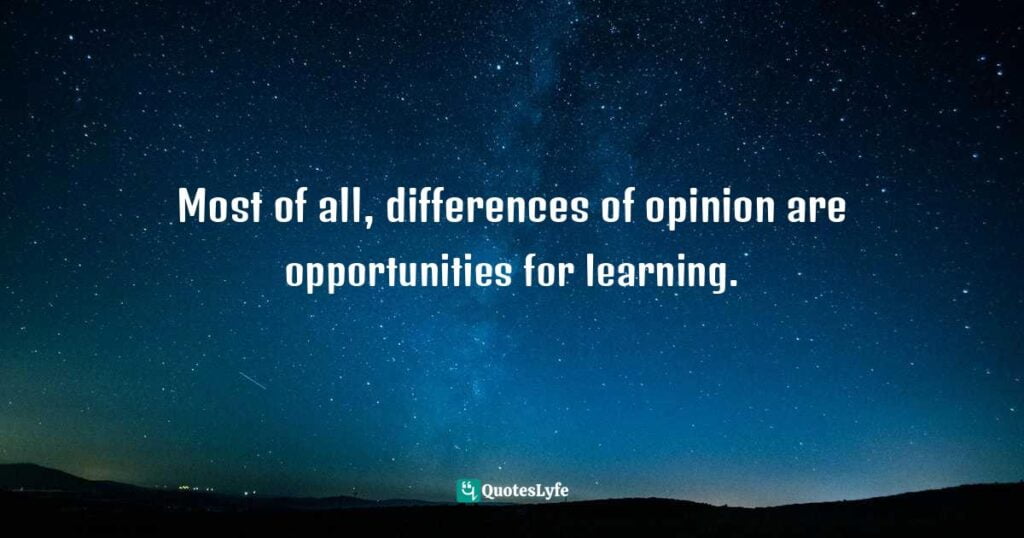
Differences of opinion
Hearing a phrase like ‘We had a difference of opinion’ can make you think about worst case scenarios. Situations involving conflict can be emotionally charged. They can take up time, drain energy and lead to the breakdown of group work. Some people may even use much of their limited resources trying to avoid conflict. However, it does not necessarily have to be this way.
Many people effectively take the time to avoid conflict by fostering meaningful relationships, tailoring communication, providing emotional support and encouragement, and creating safe environments for interactions. Being inclusive means understanding that people with different world views may approach things differently and have different value systems. It would be unhealthy for a group not to have differences of opinion – diversity of thought should always be encouraged. Differences of opinion should be considered normal and part of a robust way of working that does not have to relate to the underlying personal relationships.
However, regardless of good intentions, tensions and disagreements will occur. Vigilance is required to recognise when the interactions escalate to the early signs of conflict such as forcing, withdrawing, avoiding, and making demands.
Conflict resolution skills can be learnt, just like other social skills such as communication, facilitation and cultural competence. It is worthwhile for group members to acknowledge from the outset that disagreements are a part of group work. Consider incorporating these strategies:
- Pre-plan as a group around how to deal expediently and constructively with conflict and arising issues prior to the commencement of an initiative
- Incorporate a process for conflict resolution into the group workplan
- Try to deal with conflict immediately and attempt to find solutions when it first develops
- Try not to react negatively when conflict arises – it could be an opportunity for growth and improvement
- Practice negotiation and the facilitation of mutual problem solving – always be open to changing your mind or finding alternative ways of achieving your goal
- Consider the most appropriate ways to manage the specific needs and tendencies of individuals
- Clarify and examine the underlying needs, feelings, fears and anxieties of those involved
- Trial your solution for a period of time and evaluate if it has really worked
- On a personal level you might like to think about picking your battles, be willing to forgive and knowing when to let something go.
If you have enjoyed this segment of Get Involved keep an eye out for next month’s topic ‘Embracing change’. Send comments, feedback or ideas for new topics to alisonrogers@econetworkps.org


